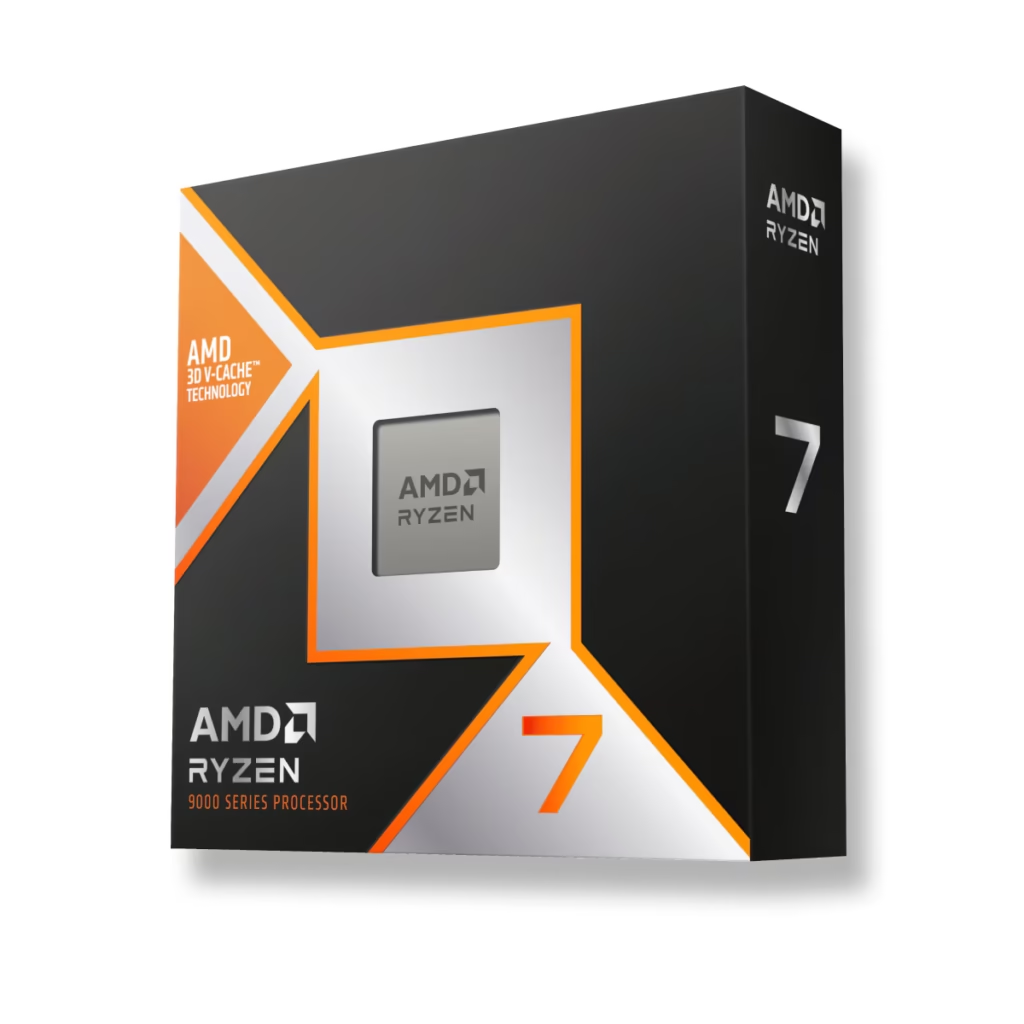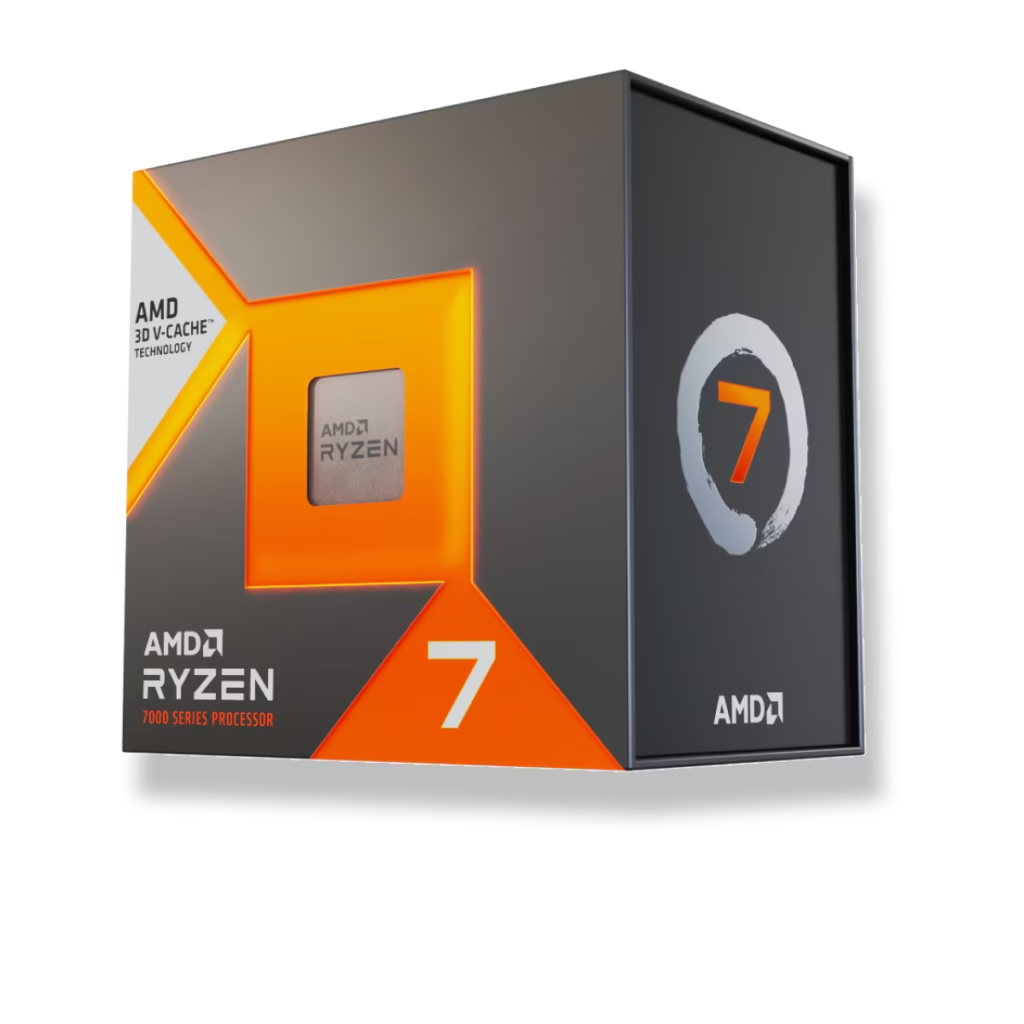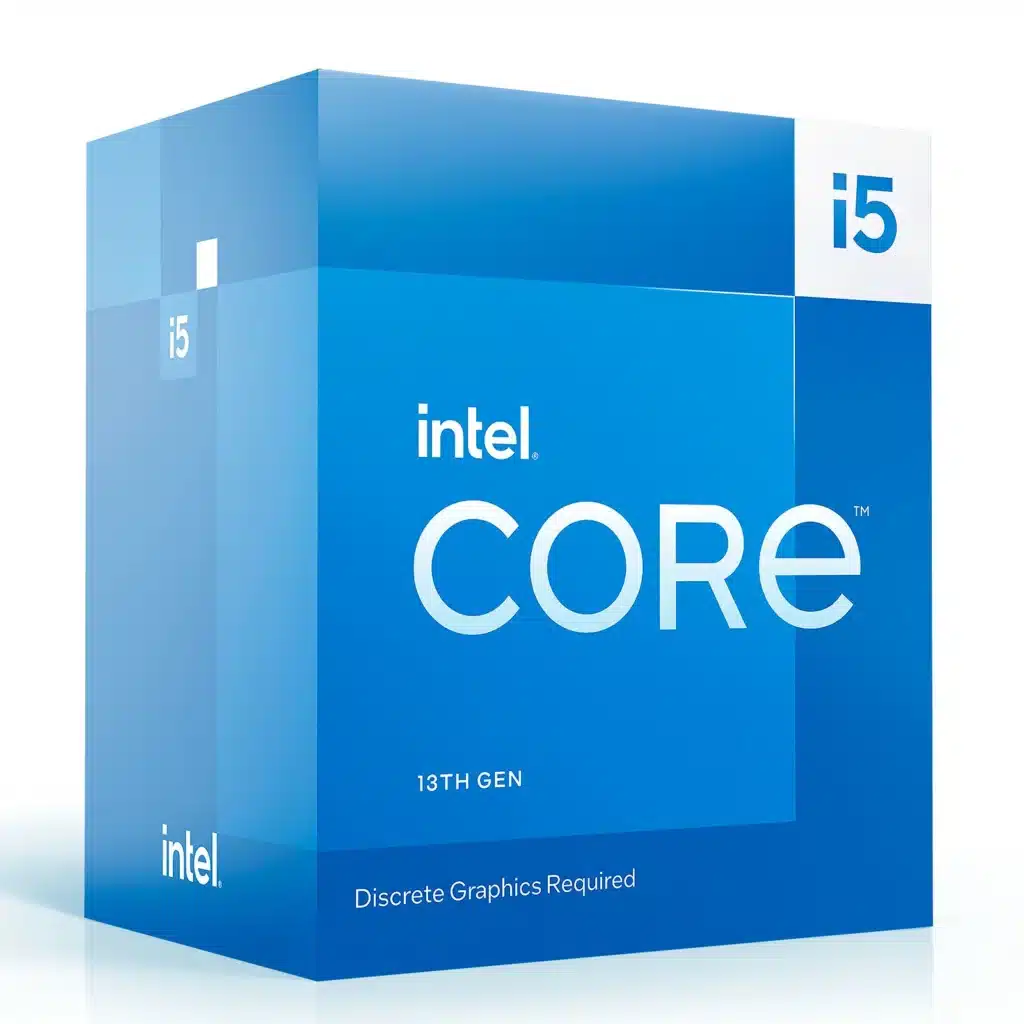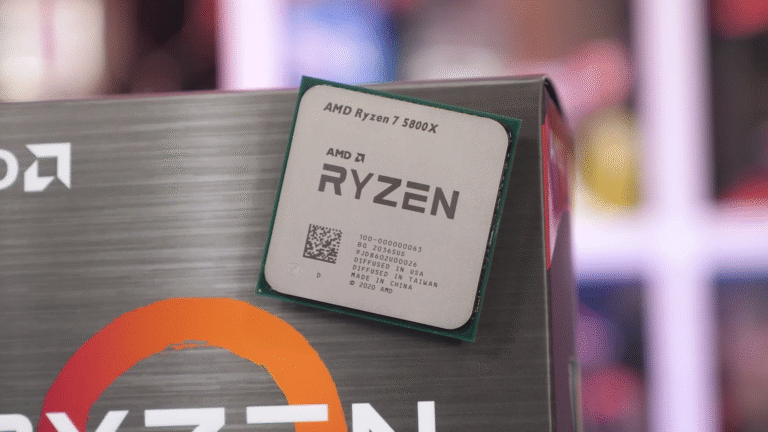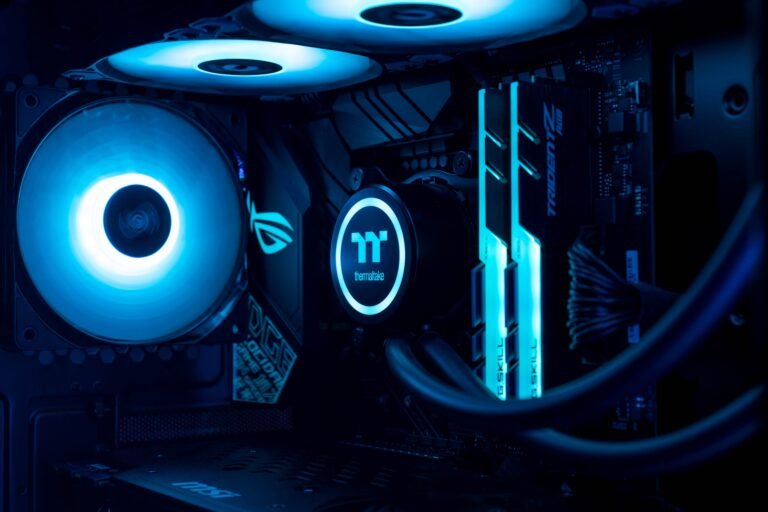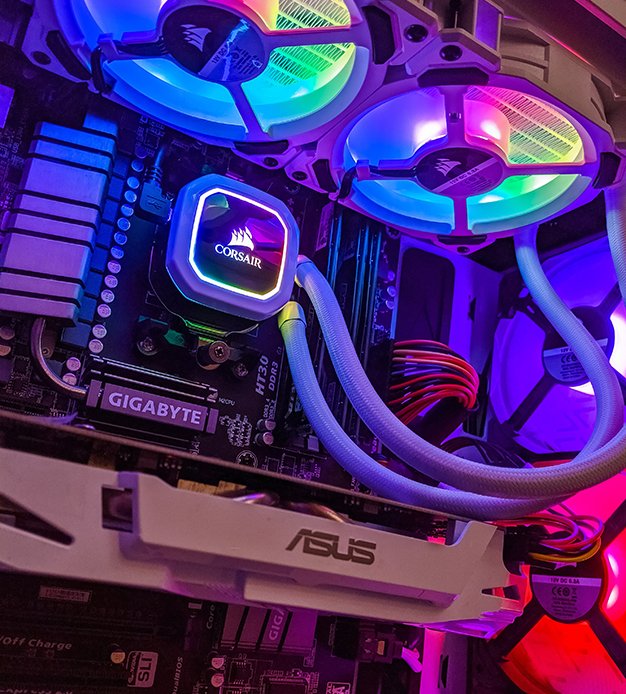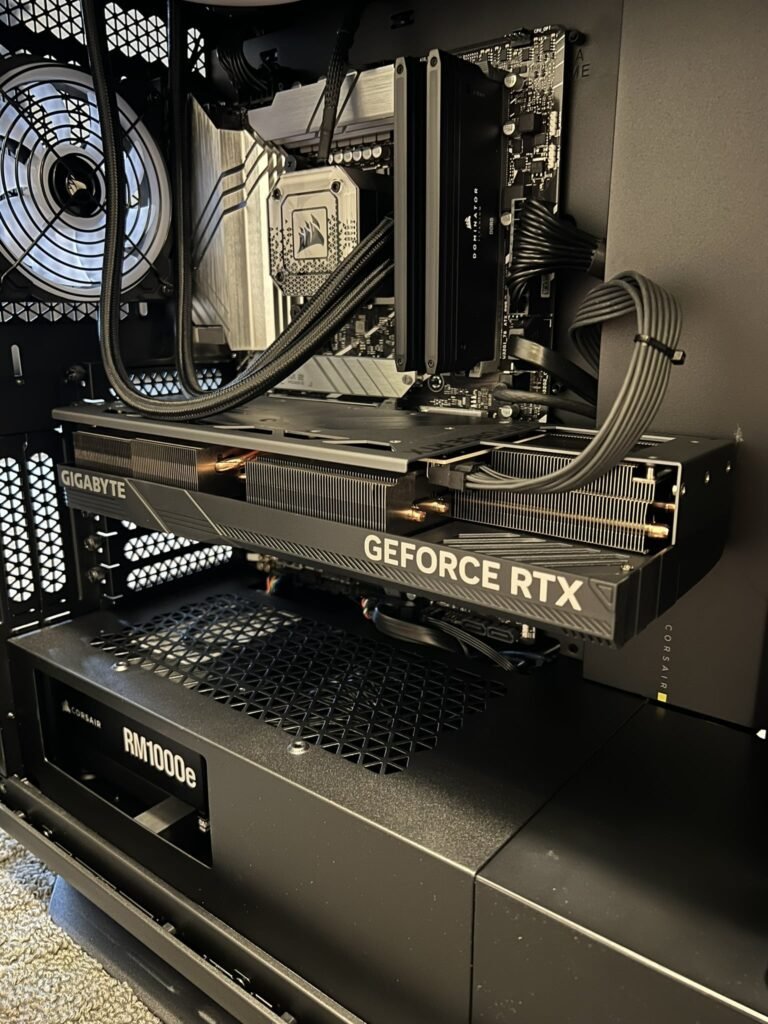The Best CPU for Gaming in 2025
In this topic below will find a list of the best CPU for gaming. When shopping for the best CPU for gaming we all want a balance between gaming performance, budget and the value proposition. We can also check the platform choice: AMD vs Intel ecosystem, in addition the compatibility and future-proofing. And if we dive deeper in the advanced technology we can add the v-cache and X3D CPUs which massively boost the gaming performance.
The AMD Ryzen 7 9800X3D is now considered to be the fastest and the best CPU for gaming in 2025, it’s faster than the Intel’s competing flagship by 35% in 1080p, particularly for CPU-bound games duo to L3 cache of 96 MB.
On the price side the 9800X3D started at $479.99 MSRP, and its limited availability often finds it selling for far higher prices, this chip delivers a high-end performance. Compared to AMD previous gen the Ryzen 7 7800X3D is still a great buy for gaming, and we expect good sell on market, However, AMD did improve the 9800X3D’s performance in applications, giving it another advantage over the prior-gen.
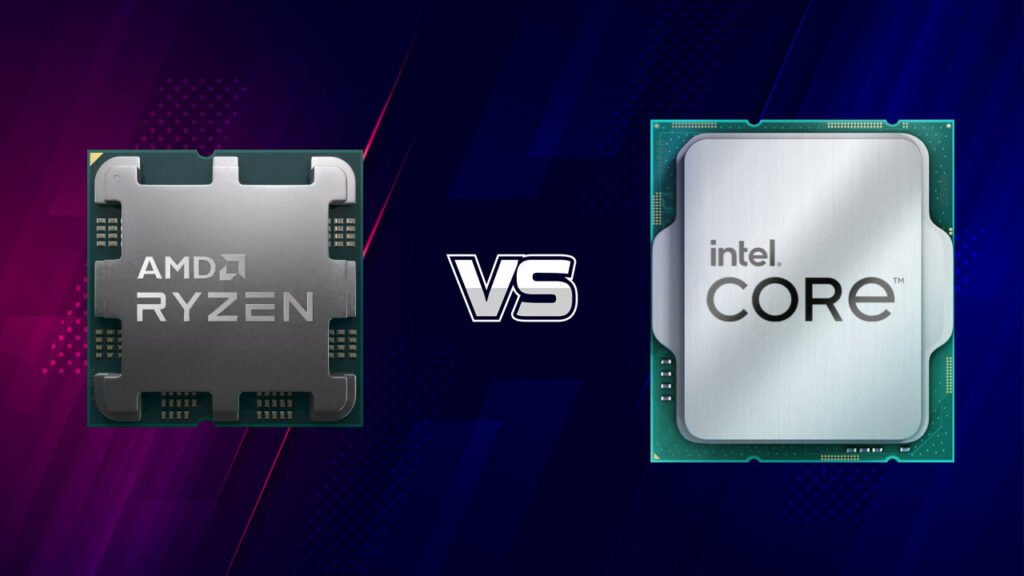
We reviewed the new AMD Ryzen 9 9900X3D, but the price tag is so high that we wouldn’t recommend it for now, unless the prices drop significantly.
If you need high-end gaming performance and top-tier CPU, the Ryzen 9 9950X3D is the chip for you. The AMD 9950X3D is designed for one mission: to be a successful and top-notch chip. With the second-generation 3D V-Cache, the Ryzen 9 9950X3D is on a whole new level of gaming performance.
Here is a list of our buying recommendations. Click on ‘Read More’ for more details about processors:
Note:
Some of the links in this article may be Amazon affiliate links, which can provide compensation to us at no cost to you if you decide to purchase our hand-picked products. These are products we’ve personally used and stand behind.
Best CPU for Gaming in 2025 – Overview:
The list below covers the best CPUs for gaming. If you need power for high-end content creation or professional workloads, check out our best workstation CPUs. Looking for value instead? Our best budget CPUs guide will help you find a great chip at a lower price. For optimal performance, don’t forget that processors benefit from quality thermal paste—we also have a guide for that. But if gaming is your focus, you’re in the right place.
Top CPUs for Gaming Benchmarks
We put in the hours testing and reviewing, so you can confidently pick what’s right for you.
10 games were tested for FPS Performance
1920×1080, Ultra Settings
Smart CPU Shopping Tips
Here are some quick shopping tips for picking a processor:
- Know Your Purpose – Gaming benefits most from higher clock speeds and strong single-core performance, while productivity (video editing, 3D rendering) needs more cores/threads.
- Match with Your GPU – Don’t overspend on a high-end CPU if your graphics card is mid-range (and vice versa).
- Check Platform Compatibility – Make sure the CPU fits your motherboard socket (Intel LGA1700, AMD AM5/AM4) and supports your RAM type (DDR4 vs DDR5).
- Consider Future Upgrades – AMD usually offers longer socket support, while Intel often requires newer motherboards.
- Balance Cores and Clocks – For gaming, a 6–8 core CPU with high boost speeds is often the sweet spot. For heavy multitasking, look at 12+ cores.
- Don’t Forget Cooling – Some CPUs don’t include a cooler; budget for an aftermarket one if needed.
- Price vs. Performance – The newest models aren’t always the best value—last-gen CPUs can still deliver great performance for less.
Best CPU for Gaming 2025: Our Top Tested Picks
1- AMD Ryzen 7 9800X3D
Best High-End CPU for GamingSpecifications
- Architecture: Zen 5
- Cores: 8
- Threads: 16
- Base Clock: 4.7 GHz
- Boost Clock Up to: 5.2 GHz
- L3 Cache: 96 MB
Reasons to Buy
- The fastest gaming CPU on the market
- 3D V cache technology
- Improved thermal performance with high clock speed
- Uses AM5 socket to ensure future compatibility
- Eliminate bottlenecks with the top-tier graphics card RTX 5090
Reasons to Avoid
- Due to high demand and supply constraints, it’s often sold at inflated prices
Retailer Deals
The AMD Ryzen 7 9800X3D is not a general-purpose processor; it is a highly specialized, best-in-class gaming CPU. Your decision to buy or avoid it hinges entirely on your specific use case and budget.
Buy the Ryzen 7 9800X3D if:
Your primary goal is maximum gaming performance. You own or plan to buy a top-tier GPU (like an RTX 4090 or its successors) and you game at 1080p or 1440p resolutions, where CPU power is critical. It is the undisputed champion for frame rates and smoothness (high 1% lows).
You value efficiency and platform longevity. Its low power consumption and heat output make it easier to cool than its Intel competitors, and the AM5 platform offers a clear upgrade path for the future.
You can find it at or near its MSRP. At its intended price point, it offers exceptional value for a premium gaming experience.
Avoid the Ryzen 7 9800X3D and consider alternatives if:
Your workload is productivity-focused. If you regularly do video editing, 3D rendering, coding, or other multi-threaded tasks, a standard Ryzen 9 or Intel Core i7/i9 processor will provide significantly better performance for a similar or lower price.
You have a mid-range GPU or game primarily at 4K. The massive performance advantage of the 9800X3D diminishes at 4K, where the GPU is the main bottleneck. A cheaper CPU like a Ryzen 5 or Ryzen 7 non-X3D model will likely deliver an identical experience for far less money.
Your budget is constrained. If the inflated market price forces you to choose between this CPU and a better GPU, always invest in the GPU first. A more balanced build will yield a better overall gaming experience.
Final Verdict: The Ryzen 7 9800X3D is the ultimate gaming CPU for enthusiasts who want the absolute best and are building a no-compromise system around a high-end GPU. For everyone else—especially those with mixed-use needs or more common hardware setups—its unique advantages are often unnecessary and difficult to justify, making other processors a smarter and more economical choice.
2- AMD Ryzen™ 7 7800X3D
2nd Best High-End CPU for GamingSpecifications
- Architecture: Zen 4
- Cores: 8
- Threads: 16
- Base Clock: 4.2 GHz
- Boost Clock Up to: 5 GHz
- L3 Cache: 96 MB
Reasons to Buy
- An exceptional gaming capability, largely due to its 96MB of L3 cache
- Remarkable Power Efficiency, With a TDP of 120W.
- Offers excellent value for gamers who want high-end performance
- Uses the AM5 socket, which supports a wide range of chipsets
- The 7800X3D runs relatively cool under load.
Reasons to Avoid
- The 7800X3D has historically been sold above MSRP due to high demand and limited stock.
Retailer Deals
The AMD Ryzen 7 7800X3D remains a top-tier choice and one of the most compelling CPUs for a gaming-focused build. Its primary strength lies in its ability to deliver elite, best-in-class gaming performance that rivals or even beats much more expensive CPUs, thanks to its groundbreaking 3D V-Cache technology.
Its key advantages are:
- Unmatched Gaming Value: It offers exceptional frame rates, especially when paired with a high-end GPU, making it the ultimate CPU for maximizing gaming performance per dollar.
- Superb Efficiency: It consumes significantly less power and runs much cooler than its competitors, reducing cooling costs and system noise.
- Platform Longevity: Built on the AM5 platform, it offers a clear and viable upgrade path for the future.
However, it is not the perfect CPU for everyone. Its main trade-off is in productivity performance, where it falls behind similarly priced non-X3D CPUs in heavily multi-threaded tasks like video editing and 3D rendering.
Final Verdict: The Ryzen 7 7800X3D is a specialist tool. If your primary goal is to build the fastest and most efficient gaming rig possible without breaking the bank, it is an outstanding and highly recommended choice. If your needs extend to serious content creation or you require the absolute latest architecture, you may want to consider its successor, the 9800X3D, or a standard Ryzen 9 or Intel Core i7 processor.
Best Mid-Range CPU for Gaming
3- AMD Ryzen™ 5 9600X
Best Mid-Range CPU for GamingSpecifications
- Architecture: Zen 5
- Cores: 6
- Threads: 12
- Base Clock: 3.9 GHz
- Boost Clock Up to: 5.4 GHz
- L3 Cache: 32 MB
Reasons to Buy
- Matching or even surpassing Intel’s flagship Core Ultra 9 285K in titles at 1080p and 1440p
- Remarkable Power Efficiency, With a TDP of 65W.
- This CPU is an excellent choice for gamers who prioritize frames per second
- The Zen 5 architecture provides a ~16% IPC improvement over Zen 4
- Competitive Pricing
Reasons to Avoid
- The Ryzen 5 9600X struggles significantly in multi-threaded workloads due to its 6-core/12-thread design
Retailer Deals
The AMD Ryzen 5 9600X is a paradox. It is a technically competent processor with a very specific appeal, but for the vast majority of users, it is difficult to recommend due to its poor value proposition.
Its primary strengths are:
- Superb Efficiency: Its low 65W TDP is its best feature, making it incredibly power-efficient, easy to cool, and ideal for small form factor or silent builds.
- Solid Gaming Performance: It provides excellent gaming performance, leveraging the improved Zen 5 architecture to be highly competitive in games, especially at 1080p and 1440p.
- Future-Proof Platform: It sits on the AM5 platform, which offers long-term support for future CPU upgrades without needing a new motherboard.
- However, its critical weaknesses make it hard to justify:
- Poor Multi-Core Performance: Its 6-core/12-thread design is severely outpaced by competitors like the Intel Core i5-14600K (14 cores) in productivity tasks, making it a weak choice for content creation or heavily threaded workloads.
- Questionable Value: At its $279 MSRP, it is significantly undercut by both AMD’s own previous-generation CPUs (like the often-discounted Ryzen 7 7800X3D for gaming) and Intel’s offerings (which offer more cores for the price).
- Minimal Generational Leap: The performance gain over its predecessor, the Ryzen 5 7600X, is often too small to notice in real-world use, making it a pointless upgrade for existing AM5 owners.
Final Verdict: The Ryzen 5 9600X is not a bad CPU, but it is a bad buy for most people at its launch price. It only makes sense if you find it at a deep discount and your priorities are strictly gaming and extreme power efficiency. For nearly everyone else, competing CPUs from both Intel and AMD’s own lineup offer more cores, better multi-threaded performance, and superior overall value.
4- AMD Ryzen™ 5 7600X
Best Mid-Range CPU for GamingSpecifications
- Architecture: Zen 4
- Cores: 6
- Threads: 12
- Base Clock: 4.7 GHz
- Boost Clock Up to: 5.3 GHz
- L3 Cache: 32 MB
Reasons to Buy
- Outstanding gaming performance, often rivaling or even surpassing higher-priced competitors
- Relatively power-efficient compared to some competitors
- Compatibility with next-generation components without needing a new motherboard
- This strength also benefits light productivity tasks
Reasons to Avoid
- The Ryzen 5 7600X is known to run very hot and can be difficult to cool effectively
Retailer Deals
The Ryzen 5 7600X is a strong gaming-centric CPU best suited for someone building a new, future-proof system from scratch and who prioritizes gaming performance above all else.
However, it is not ideal for:
- Users on a tight budget, due to the high platform costs.
- Those who need the best multi-threaded performance for productivity work.
- Anyone upgrading from a recent AM4 system, where the cost may not justify the performance gain.
Bottom Line: A great CPU for a new gaming rig, but its value heavily depends on the total cost of the AM5 platform and the availability of better-valued alternatives.
Best Budget CPU for Gaming
5- AMD Ryzen™ 7 5800XT
Best Budget CPU for GamingSpecifications
- Architecture: Zen 3
- Cores: 8
- Threads: 16
- Base Clock: 3.8 GHz
- Boost Clock Up to: 4.8 GHz
- L3 Cache: 32 MB
Reasons to Buy
- AMD Ryzen™ 7 5800XT is a compelling option for a budget-friendly CPU
- Smooth gameplay at 1080p and even 1440p resolutions when paired with a capable GPU
- The 5800XT comes with AMD’s Wraith Prism air cooler in the box, as it eliminates the need to purchase a separate cooling solution
- With its 8 cores and 16 threads, the 5800XT handles multi-threaded workloads competently
Reasons to Avoid
- The Ryzen 7 5800X offers nearly identical performance at a significantly lower price, making it a smarter choice for cost-conscious buyers.
- For users willing to invest in a new platform, AMD’s Ryzen 7000 or 9000 series CPUs on the AM5 platform offer better performance, support for DDR5 memory, and PCIe 5.0, providing more future-proofing.
Retailer Deals
The Ryzen 7 5800XT is not a bad CPU; it’s a bad value proposition at its intended price. Its entire reason to exist is to offer a slightly refreshed option for the AM4 platform, but it only makes sense to buy if you can find it at a price that undercuts the standard 5800X. For everyone else, better alternatives exist.
6- Intel Core i5-13400F
Best Budget CPU for GamingSpecifications
- Architecture: Raptor Lake
- Cores: 10 ( Performance-cores: 6 + Efficient-cores: 4)
- Threads: 16
- Base Clock: 2.5 GHz
- Boost Clock Up to: 4.6 GHz
- L2 Cache: 9.5 MB
Reasons to Buy
- The i5-13400F offers a compelling price-to-performance ratio
- The i5-13400F supports both DDR4 and DDR5 memory
- This CPU handles multi-threaded workloads like video editing, rendering, and streaming efficiently. It outperforms similarly priced CPUs
- Making it energy-efficient and easy to cool, the i5-13400F has a 65W TDP and peaks at around 110W under load
Reasons to Avoid
- No Integrated GPU: The “F” suffix means it lacks integrated graphics, so a discrete GPU is required
- Power Draw: It consumes more power than the i5-12400F, though still within reasonable limits
Retailer Deals
The Intel Core i5-13400F is a top-tier budget CPU for gamers and content creators seeking performance without overspending.
Its combination of gaming prowess, multi-core capabilities, and platform affordability makes it a standout choice in the sub-$200 segment. If you prioritize value and flexibility, this CPU is an excellent investment.
Top Picks for: Productivity & Content Creation Performance
While gaming is the focus, many enthusiasts use their PCs as all-around workhorses. A CPU’s performance in applications like video editors, 3D renderers, and compilers is a crucial deciding factor.
Best High-End Workstation CPU
For professionals, the AMD Ryzen Threadripper PRO 7995WX is in a league of its own. With 96 cores, it decimates rendering, simulation, and coding tasks. For most, it’s overkill, but for those who need maximum throughput, nothing else comes close.
Best Mainstream Creator CPU
The Intel Core Ultra 9 285K shines in content creation. Its balance of high-performance cores (P-cores) and high-efficiency cores (E-cores) provides excellent multithreaded muscle for video editing and rendering while remaining responsive during lighter tasks.
Best Value Creator CPU
The previous-generation Intel Core i5-13600K remains a phenomenal value. It often outperforms newer, more expensive CPUs in multithreaded applications like Handbrake and offers incredible performance per dollar for a budget content creation rig.
FAQ & Common Misconceptions
Q: Do I need more cores for better gaming?
A: Not necessarily. While modern games are using more cores, gaming performance is still heavily influenced by a CPU’s single-core clock speed and L3 cache size (as seen with AMD’s X3D chips). 8 high-performance cores are currently the sweet spot for gaming.
Q: Is a high-end CPU necessary for 4K gaming?
A: No. At 4K resolution, the workload shifts almost entirely to the GPU. The difference between a mid-range and high-end CPU at 4K is often minimal (1-5%). Invest more in your graphics card if you’re a 4K gamer.
Q: Can I overclock the AMD Ryzen 7 9800X3D?
A: Yes, to a degree. This is a first for an X3D CPU. While traditional frequency overclocking is still limited to prevent damage to the 3D V-Cache, AMD has introduced new precision overclocking tools for these chips, allowing for more performance tuning than previous generations.
